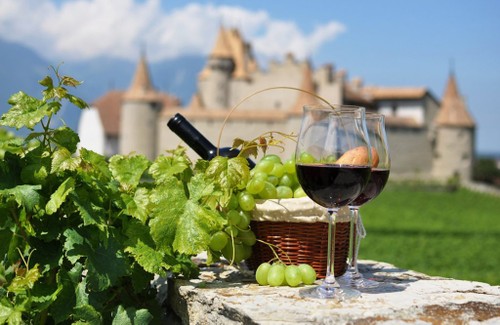 Photo: laubergechezfrancois.com Photo: laubergechezfrancois.com |
VOV reporter: Thank you for joining us today, Antoine. First up, tell me and VOV audience about yourself?
Antoine Brochet: Thanks for having me. I’m very glad to talk to VOV audience about French wine, which is one of my greatest passions. My family and I are originally from eastern France, close to Swiss and the German borders. We moved when I was a young boy to the southeast of France, in the Provence area, this is where I spent a bit part of my childhood. I have been living in different parts of France and Europe for my student years and work. And I’m currently living in Berlin for about 2 years now. I’m working in the IT industry but have a strong passion for wine history, wine making and of course wine tasting. That’s a passion that has been transfered to me by my dad and that’s a passion that I have cultivated for a past few years by following wine courses, reading numerous books and tasting hundreds of kinds of wine. Because outside of being a fascinating world, studying wine is also great way for me to stay connected to a very important part of the culture of my country while living abroad for more than 5 years now.
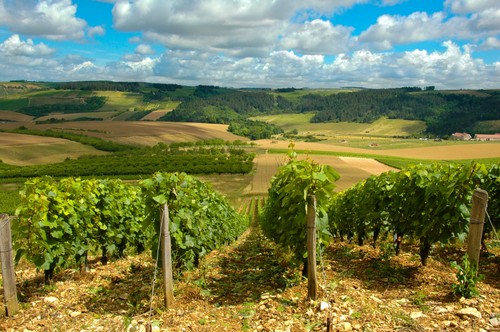 A vineyard in Provence, France. (Photo: internet) A vineyard in Provence, France. (Photo: internet) |
VOV Reporter: France stands out among all others as the home of exquisite cuisine and fine wine. So what kinds of wine are produced in France?
Antoine Brochet: France produces various kinds of wine. You can find red, white, rosé, dry, sweet, fortified, still or sparkling wine. These wines are produced pretty much all over the country but you would find about ten main wine-growing regions in France: Alsace, Bordeaux, Bourgogne (Burgundy), Beaujolais, Champagne, Côtes du Rhône, Jura, Languedoc, the Loire Valley. But many other regions, like the inland southwest and Normandy also produce wine. As you probably guessed when you heard that list, most French wines are named for the region they come from – for example, bordeaux, burgundy, and champagne...Each of regions are then sub-divided into smaller areas. In bordeaux for example, you may have heard of Medoc, Saint-Emilion or Pomerol. Each of these areas have strict rules established to regulate where and how the wine is produced with the intent of ensuring a consistent quality and specificity.
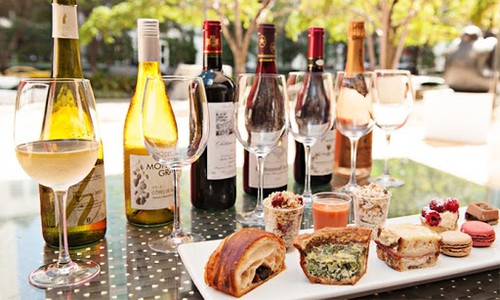 |
VOV Reporter: Well, there are plenty of choices for us. Among the so many kinds of French wine, which one is the best?
Antoine Brochet: The types of grapes definitely play an important role in the wine taste. But indeed, one of the most important things to understand about wine in general and French wine in particular is that: It’s not only about the grapes it comes from. It’s also the type of soil, the geologic characteristics, terrain, climate, and the micro-climate in a particular French wine region and that is a concept known as terroir. Finally, the wine-making techniques used in different regions will also influence taste and quality. This is what makes France quite unique when it comes to wine. Because it’s the country with an incredible cities when it comes to weather conditions, geological characteristics, as well as know-how of wine making developed over centuries. So each one region has particular conditions, some of them are more well-known in the world than others. But I would not say there is a single best wine growing region in France. I all depends on what kinds of wine you like, what are you planning on eating with, or for what types of occasions. For example, Bordeux is famous its ... wine paried very well with red meat while champagne will be appriciated to celebrate special occasions.
Although they may seem highly codified and maybe a bit snobby to someone looking in from overseas, there are no hard and fast rules for French wines. There might be some labels or vintages (millésimes) that are considered exceptional, but the average French person is just as capable of enjoying a mid-range bottle you bought from the grocery store, as a pricey purchase from a wine cellar or local vineyard. It’s all about your personal taste.
VOV Reporter: There are many famous wine producing countries in the world like Chile, Australia, the US and Italy but how did France become an icon of this industry?
Antoine Brochet: The practice of fermenting grapes to produce wine probably first came about in China, around 7000 BC. But its origins in Europe stem from the country of Georgia, around 6000 BC. From Georgia, the practice of making wine gradually spread through the continent. It took a few millennia, but by the 1st century AD, wine grown in what is today France’s Rhône region had quite the reputation among Ancient Roman connoisseurs. So, wine didn’t originate in France, but it’s been a part of French history for a very long time, even so. Despite the fact that wine’s origins aren’t French, for most French people , wine is an inherent part of French culture – and French national pride.
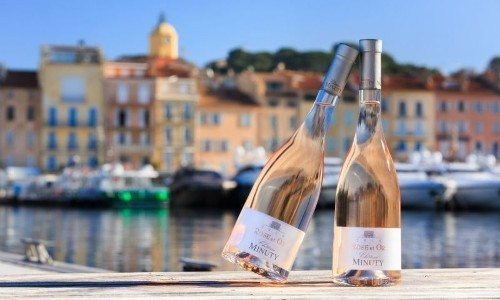
Château Minuty Rosé Et Or, Provence
|
VOV Reporter: Though wine-making did not originate from France, the country did invent sparkling wine, am I right?
Antoine Brochet: That’s correct. In the early 16th century, Benedictine monks near Carcassonne, France, probably invented the process of creating sparkling wine. The most famous variety of this white, bubbly concoction is champagne, famously cultivated and elaborated upon by a fellow monk, Dom Perignon, in the 17th century. Champagne is a sparkling wine, but not all sparkling wine can be called “champagne”. Under European Union legislation, the name “champagne” can only be used for a sparkling wine from the Champagne region that follows strict guidelines covering everything from the types of grapes, to the process of making it.
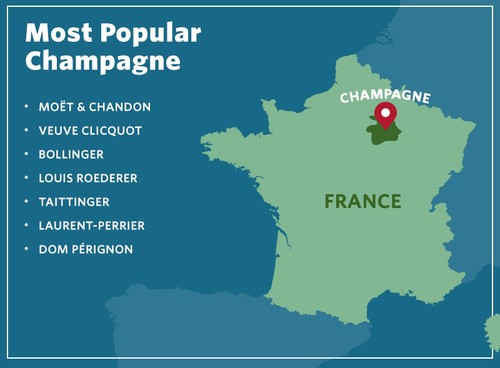 (Photo: vivino.com) (Photo: vivino.com) |
VOV Reporter: So does it mean champagne is the most popular among various kinds of French sparkling wine?
Antoine Brochet: Although the French appreciate many different kinds of sparkling white wines, champagne tends to be the most popular, especially for celebrations, like during the Easter or winter holidays, when it’s classically paired with foie-gras. So, if you’re invited to dinner, a birthday party, or other gathering at a French person’s house and you want to bring a bottle of wine (a customary thing to do, although flowers are a completely reasonable alternative), then you can never go wrong by bringing a bottle of champagne.
VOV Reporter: That’s very interesting. As France produces a lot of wine, do French people drink a lot of wine too?
Antoine Brochet: That’s an interesting question. And it’s true. With its reputation and cultural status, it’s easy to think that French people drink a lot of wine. And in fact, France is the leading wine-consuming country per person. The French population drinks about 11% of the world’s wine. That seems like a lot, but believe it or not, wine consumption has drastically gone down over the past decades. Today, wine producers even worry at how (comparatively) little wine the French drink! According to some statistics from the French National Committe of Wine Makers, the average French adult drinks 100 liters of wine per year in 1975 to about 40 liters today. Although wine and alcohol consumption in France may be less than it was in previous decades, you may be wondering if France has an alcohol problem. Interestingly, according to a recent survey, France ranked 43 on a list of 53 European countries with health issues connected to alcohol. This means that, while alcoholism is certainly a phenomenon in France, it’s not a scourge. I think this is mainly due to the French way of consuming food and drink in general: Everything in moderation.
VOV Reporter: What a wise way! We will be back next week for more tips about how to read a French wine label, order wine in a French restaurant, make a toast in French, as well as some French wine etiquette. Until then, keep tuning into VOV247.
(To be continued)